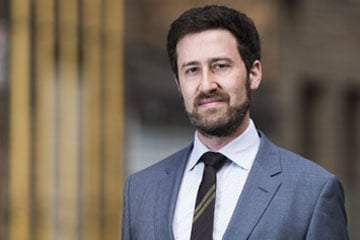A British Columbia woman who acknowledges a past addiction to crystal meth and former life dealing drugs has been allowed to proceed with her career as a lawyer, according to a recent decision by a Law Society of British Columbia hearing panel.

A British Columbia woman who acknowledges a past addiction to crystal meth and former life dealing drugs has been allowed to proceed with her career as a lawyer, according to a recent decision by a Law Society of British Columbia hearing panel.
In De Jong (Re), 2017 LSBC 44 (LINK 1), the hearing panel concluded that Vanessa Lauren de Jong should be allowed to enrol in the Law Society Admission Program and to article at a criminal law firm.
The hearing centred on the determination if, under the Legal Profession Act, de Jong would meet the requirement that articling students and members be “a person is of good character and repute” and “fit to become a barrister and a solicitor of the Supreme Court.”
According to the ruling, de Jong had been involved in criminal acts from about 1999 — when she was 15 years old — until 2007.
The panel heard that in high school in Alberta, de Jong had become friends with gang members who were involved in dealing illegal drugs and that she also developed an addiction to crystal meth.
However, the ruling said that de Jong had clearly turned her life around after kicking her addiction and later being jailed in Edmonton and Fort Saskatchewan, after she was hit with 20 criminal charges following a police raid of an Edmonton town home in 2006.
“[De Jong] testified that, previously, she had not considered the consequences that her conduct had on others, particularly her parents. According to [de Jong], her time in custody made her realize the impact that her criminal activities had on others,” said the ruling.
“In particular, [de Jong] spent part of her time in custody with a woman to whom she had previously sold drugs. Consequently, [de Jong] was able to see the deleterious effects that her criminal activities had on others.”
During her imprisonment, de Jong said she came into contact with many indigenous people. She also said she realized many did not have the advantages she had, such as family support or financial resources.
“[De Jong] testified that her experiences in custody made a significant impression upon her and are the source of her commitment to addressing issues such as the over-incarceration of indigenous people in Canadian prisons,” said the ruling.
In May 2010, de Jong pleaded guilty to possession for purposes of trafficking cocaine, and she was sentenced to 20 months of community service. She enrolled in law school in 2013 at the University of Victoria’s law school, after completing a degree in anthropology. She later transferred to the University of British Columbia for the final two years of her law degree and finished her studies in 2017.
The panel heard she’d like to pursue a career in legal aid criminal law, and she has since volunteered at a law firm and done paid clerical work.
Part of the submissions to the panel included nine letters of support, including three from lawyers from a firm that has offered her an articling position, pending the outcome of the hearing.
“[De Jong] testified . . . that she had worked very hard to turn her life around and to accomplish all that she had. [She] stated that she had finally made her parents proud of her. She also now wished to use her experience to help others,” said the ruling.
“[She] testified she was not going to throw all of that away now. She further testified that she had come to love the law as a result of her studies, and was now ashamed of her prior conduct and her previous disrespect for the law.”
The panel ultimately concluded that they had “no hesitation in finding that the Applicant has genuinely and successfully rehabilitated herself” and that she had been “honest and forthright” throughout the hearing, as well as open about her past actions.
“It is clear, based on her past conduct, that there was a time in the past when the Applicant did not satisfy the character and fitness standards of s. 19(1)of the Act,” said the panel. “Nevertheless, the existence of a prior criminal record, even involving serious offences, is not in and of itself an impediment to the Applicant satisfying the character and fitness standards now.”
Daniel Naymark, a Toronto-based lawyer with Naymark Law, says the ruling is a “bold and welcome decision.”
“It would have been safe for the panel to reject this candidate and so shield itself from future criticism should she engage in bad conduct as a lawyer,” he said in an email comment.
“Instead . . . the panel gave a deserving person a chance at earned redemption. Perhaps more importantly, the panel recognized that the public benefits from a legal profession that reflects a diversity of life experiences.”









